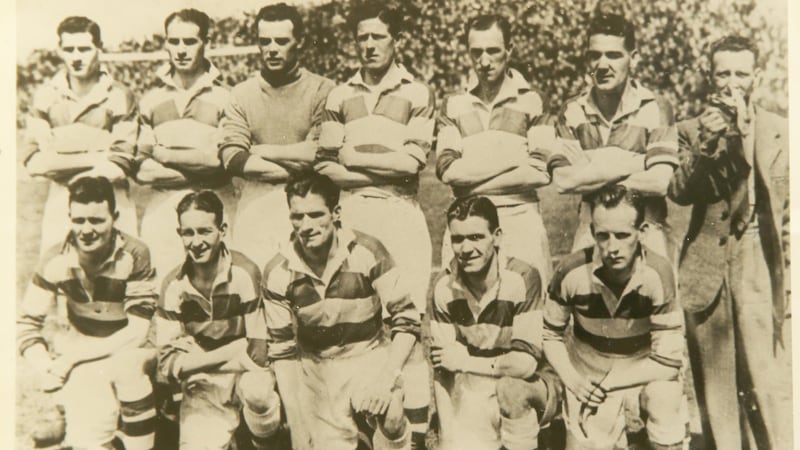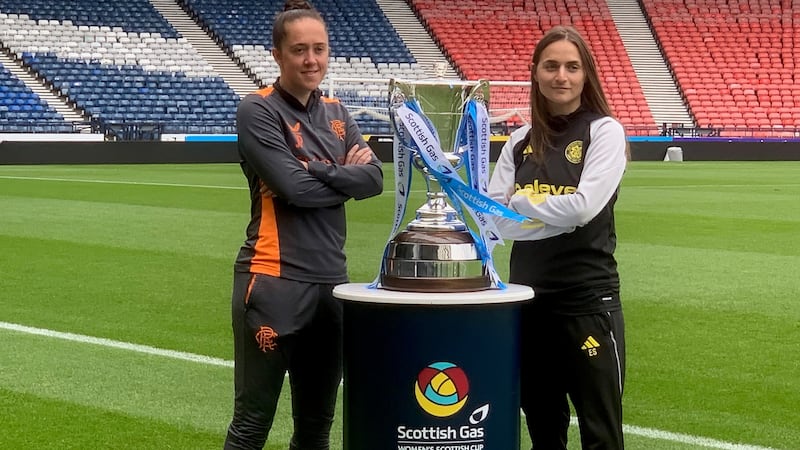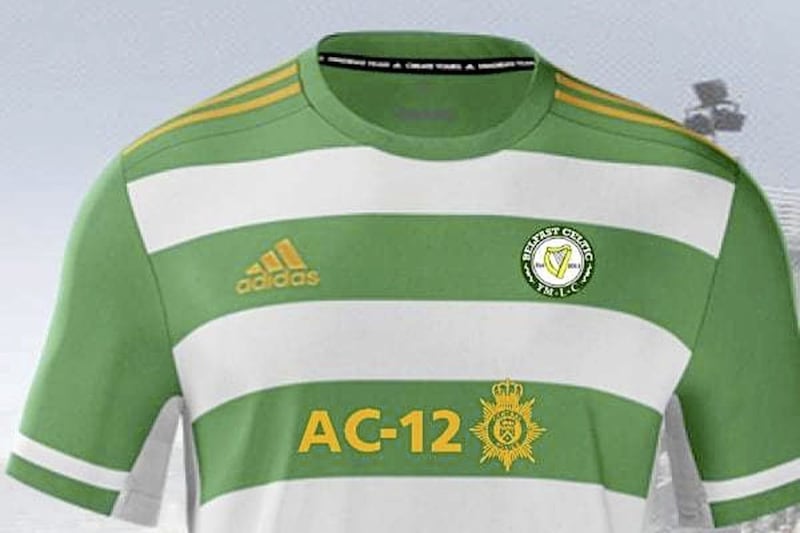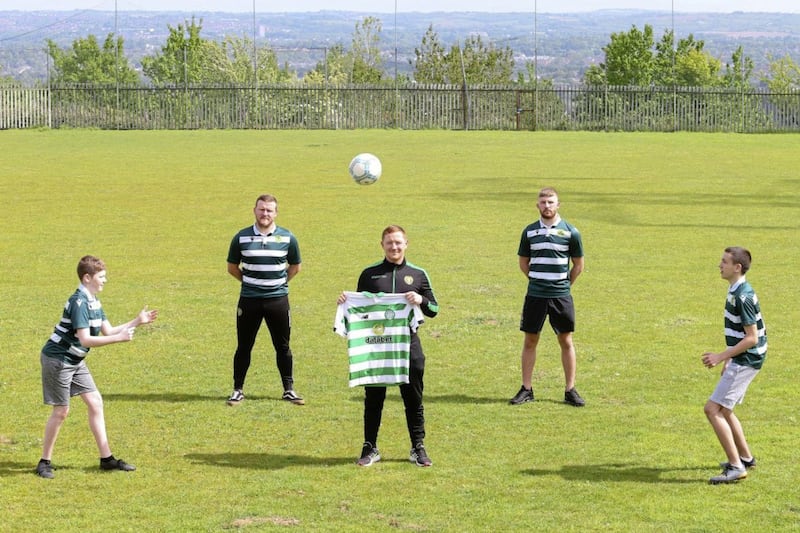THE golden era of Belfast Celtic coincided with Elisha Scott’s decision to take over the reins at Paradise in 1934. And the former Liverpool legend would have a lot to live up to.
Having accepted the Irish FA’s desperate pleas to return to football in 1924, Celtic manager Austin Donnelly had assembled together a team that would win four consecutive Irish League titles from 1925 to 1929.
Six defeats in 96 matches, 335 goals scored and 122 goals conceded, indicates how dominant the men from Paradise became. The Irish FA must have been delighted to see Celtic’s swashbuckling and playing style back entertaining thousands of paying football supporters.
Archie Heggarty and Jimmy McColl’s tenures as managers between 1929 and 1933 were marked by the four pieces of silverware.
While this level of achievement might have been acceptable at another club, it was clear that major reconstruction of the team was required.
Mainstays Stanley and Jackie Mahood, Sammy Curran, Mickey Hamill and Jimmy Ferris were coming to the end of their careers. A new batch of stars would shine brightly at Paradise.
Scott’s debut as player-manager came on August 18th 1934. The 8-2 Irish League win against Newry Town included four goals from Dave ‘Boy’ Martin. Thirty-two goals later, in December, he and Johnny Brown were transferred together to Wolves for £7,500.
It would be 1935-36 season before Scott would guide his team to the first of five titles in-a-row and, at the outbreak of the Second World War, the opening two Regional League titles. Tommy Breen, Keiller McCullough, Harry Walker, Norman Kernaghan, Jimmy McAlinden, Peter O’Connor, Jimmy Turnbull and Scott himself would play a major or role in those successes.
Celtic experienced the joy and disappointment of victory and defeat on the same day. At full-time in the 1936 County Antrim Shield final at Windsor Park, a Willie Donaghy goal separated the first XI from the second XI. The game was played 24 hours after Glasgow Celtic’s 2-1 win at Paradise in Bob Ferguson’s testimonial game.
Gateshead-born Jimmy Turnbull arrived at Celtic Park via Barnsley, and Cork. In September and October 1936, Linfield, Coleraine, Ards and Larne felt the full force of his scoring abilities as he claimed 15 of Celtic’s 25 goals. By the end of that season the Geordie’s goal tally had reached 82 in all competitions, including a hat-trick in the Irish Cup final win over The Blues at the Oval. The trophy was retained in 1938 after a replay against Bangor at Solitude.
Having edged Derry City into the runners-up place in 1936 and 1937, the clubs ended level on points with each other at the climax of 1937-38.
If the goal difference rule had been in use then, Celtic would have been out of sight. Instead, Elisha Scott’s side required an Easter Monday play-off to wrap up the title with a 3-1 victory at Windsor Park.
In the following two seasons, Celtic had room to spare on Ballymena United and Portadown as the trophy haul under Elisha Scott’s reign continued to increase.
Celtic secretary Robert Barr was constantly fending requests for financial help that were vetted by the directors. A trawl through the minutes of one board meeting recounts that Woodburn FC the club from which Sammy Curran was signed was given a £10 grant.
Permission was given to play a friendly with Linfield on behalf of the Belfast Tramway Board. A testimonial match against Ards FC for the benefit of an injured played was agreed in principle.
However, a suggested match against Shamrock Rovers was rejected because members objected to playing on a Sunday.
Sometimes Celtic themselves would be on the receiving end of rejection. A written request to Everton asking them to come and play a benefit for Jackie Mahood was turned down. Theo Kelly, the secretary at Goodison Park replied to Robert Barr that Everton was unable to grant the request.
In addition, wrote Kelly, if the club were to agree to come to Belfast, it would only be to play Linfield!
While Celtic drew its support from the mainly Catholic district of west Belfast, the club was proud of its reputation for signing players of all faiths and none.
Even in the face of criticism for playing too many Protestants on the team, Elisha Scott continued to use his personal connections from within that community to seek out the best talent available.
The rivalry between Belfast’s two big clubs, Celtic and Linfield intensified with Scott’s first five years in charge yielding sixteen trophies.
In the minds of the Celtic support, the club spoke for them. In the absence of proper employment, housing and public representation, the phrase coined by one supporter ‘When we had nothing we had Belfast Celtic and then we had everything’ grew to mean so much.
Elisha Scott, who had given them a team to be proud of, was almost deified in their eyes.
Famed for his practice of using industrial language to annoy opponents, Scott was not averse to using other tactics as well. Witnesses recall how he would rile visiting Linfield supporters by approaching their end of Paradise whilst making the sign of the Cross. Invariably it had the desired effect.
Through Elisha Scott and Celtic, the people of west Belfast had something precious that they thought could never be taken away from them.
How wrong could they be...







